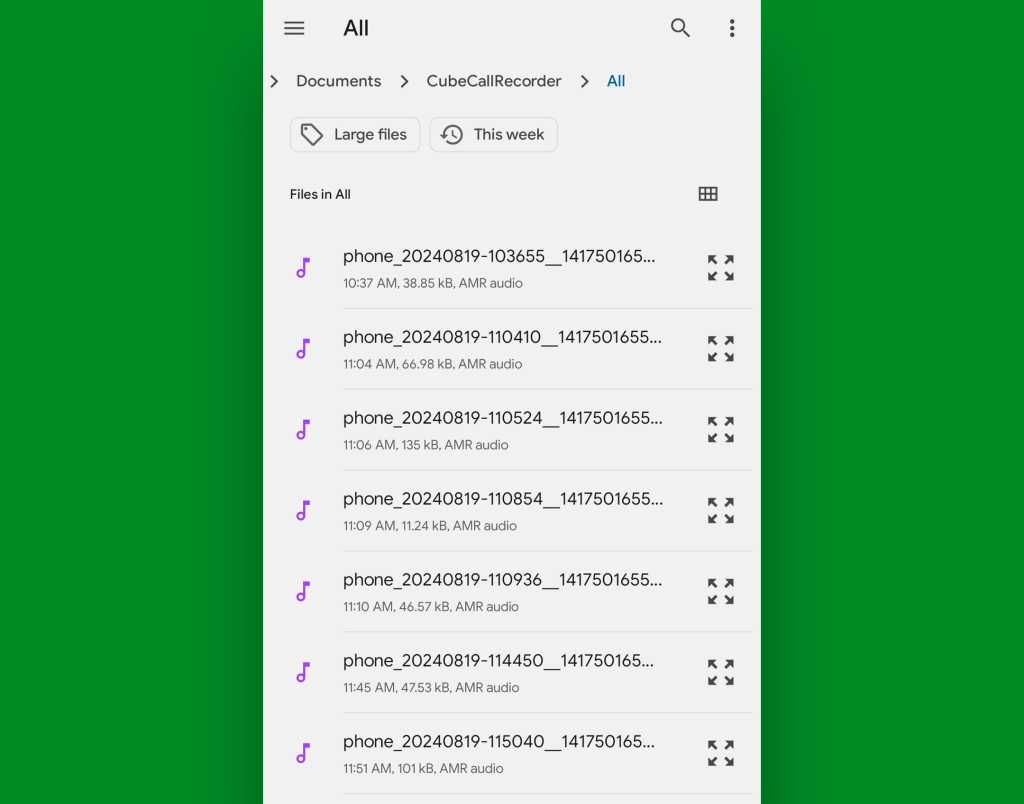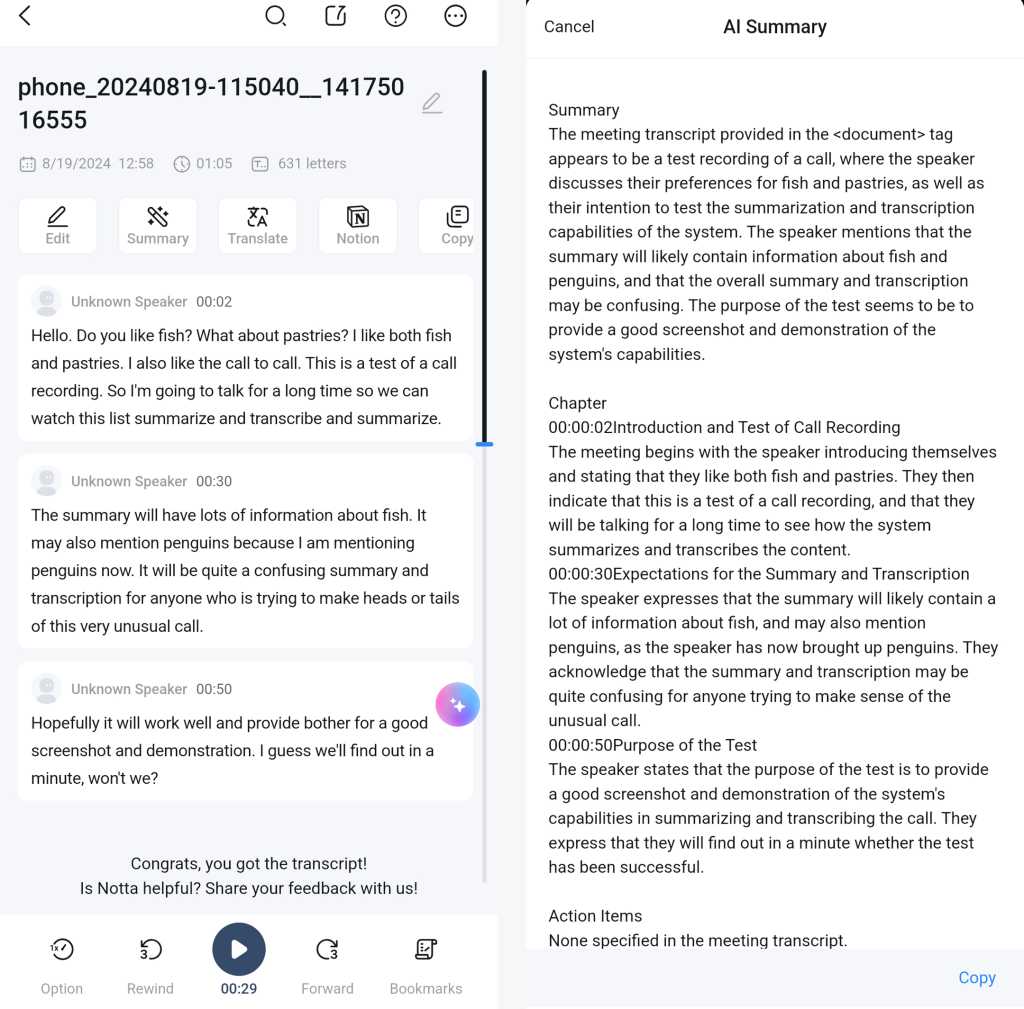- Skip past the initial sign-in screen that comes up and select to continue as a guest.
- Tap the “x” on any screens you see prompting you to upgrade to the pro plan right off the bat.
- Tap the circular plus icon in the app’s lower-center area.
- Select “Import Files” from the menu that comes up.
- Tap “Import Audio Files.”
- In the file picker that pops up next, you’ll need to find the folder where Cube ACR — the Android call recording tool we were talking about a minute ago — stores its files. (On most reasonably recent Android devices, you’ll do this by tapping the three-line menu icon in the upper-left corner of the screen, then selecting the name of your phone and navigating to “Documents” followed by “CubeCallRecorder” and then “All.”)
- Tap the name of your most recent recording — or whichever recording you want to access — in the list.

JR Raphael, IDG
You’ll then see that file show up in Notta’s main home screen area. You can tap it to view a complete transcription as well as to generate a summary of the high points and any action points, translate the text into another language, and copy the text for pasting wherever you want.

JR Raphael, IDG
Like most voice-to-text transcriptions, the results aren’t perfect. And the process here certainly isn’t as simple or seamless as what you’d get with Google’s own Pixel Call Notes system.
But if you aren’t planning on picking up a Pixel 9, it’s a crafty way to get the job done and get the same basic end result on whatever phone you’re palming — and that, my friend, is what we call the power of Android.

